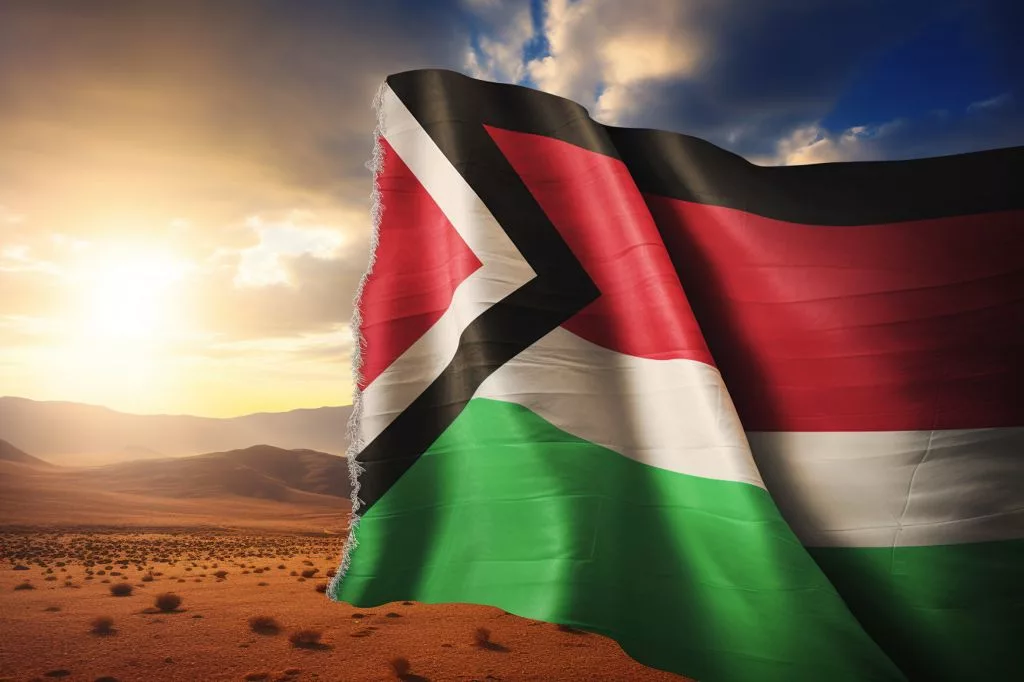South Africa is working to enhance maritime security and improve transportation infrastructure through local initiatives and global collaborations. The country is implementing the Djibouti Code of Conduct, a regional agreement designed to counter piracy and armed robbery against vessels, and investing in transportation infrastructure development through initiatives like the PRASA Mixed-Use Development Student Accommodation and Retail Centre. These efforts demonstrate South Africa’s commitment to economic growth, social development, and sustainability, positioning the country as a regional leader in the global community.
How is South Africa enhancing maritime security and developing transportation infrastructure?
South Africa is addressing the urgent challenges of enhancing maritime security and developing transportation infrastructure through global collaboration and local initiatives. Maritime security is being tackled through the implementation of the Djibouti Code of Conduct, a regional agreement designed to counter piracy and armed robbery against vessels. Meanwhile, the country is investing in transportation infrastructure development through initiatives such as the PRASA Mixed-Use Development Student Accommodation and Retail Centre, which aims to address the increasing demand for student housing while concurrently improving the transportation sector.
Tackling Maritime Security Challenges
In October 2023, South Africa’s Transport Minister, Ms. Sindisiwe Chikunga, took the spotlight at the Maritime Security: Djibouti Code High-Level Meeting. The significant assembly united local and global representatives from member states backing the International Maritime Organisation (IMO) for a common goal. They aimed to effectively eradicate piracy at sea and create legislation suitable for suppressing such actions.
The Djibouti Code High-Level Meeting is a pivotal international event concentrating on enhancing maritime security and safety in the region surrounding the Horn of Africa. The primary agenda is the implementation of the Djibouti Code of Conduct, a regional agreement designed to counter piracy and armed robbery against vessels.
In addition to the Djibouti Code High-Level Meeting, Minister Chikunga also presided over and displayed the final phase of the Mixed-Use Development Student Accommodation and Retail Centre in Cape Town. The project is an initiative by the Passengers Rail Agency of South Africa (PRASA).
Advancing South Africa’s Transport Infrastructure
The official inauguration ceremony gathered essential stakeholders from the rail and transportation sector. Among the attendees were board members and the Group Chief Executive Officer of the rail agency. Minister Chikunga’s keynote speech emphasized the significance of developing transportation infrastructure in South Africa.
The Maritime Security Djibouti Code of Conduct High-Level Meeting took place at The President Hotel in Cape Town, Western Cape, on Tuesday, 24 October 2023. Meanwhile, PRASA’s Mixed-Use Development Student Accommodation and Retail Centre event was held at Cape Town Station, in Cape Town CDB, Western Cape, on the same day.
Maritime security and transportation infrastructure are critical components of South Africa’s economy and development. The country’s strategic position along crucial shipping routes renders it a prime target for piracy and other maritime criminal activities. Therefore, South Africa’s engagement in the Djibouti Code of Conduct and the High-Level Meeting is essential for the nation’s maritime security.
Fostering Economic Growth and Development
The Djibouti Code of Conduct, originally established in 2009, has contributed to a significant reduction in piracy incidents in the region. Nonetheless, ongoing cooperation and the adoption of best practices remain necessary to tackle evolving maritime security challenges. The High-Level Meeting offers an opportunity for countries to discuss and fortify their commitment to securing their maritime domain.
Alongside enhancing maritime security, South Africa is investing in transportation infrastructure development. The PRASA Mixed-Use Development Student Accommodation and Retail Centre exemplifies the country’s efforts to address the increasing demand for student housing while concurrently improving the transportation sector.
This initiative represents the government’s dedication to providing affordable and accessible housing for students and improving the quality of life for its citizens. Moreover, the project highlights the potential benefits of public-private partnerships in tackling infrastructural obstacles.
The Mixed-Use Development Student Accommodation and Retail Centre is anticipated to stimulate South Africa’s economy by generating jobs and invigorating the retail sector. It also strives to enrich Cape Town’s urban landscape and support the city’s vision of transforming into a world-class, sustainable metropolis.
South Africa’s involvement in the Maritime Security Djibouti Code High-Level Meeting and the emphasis on transportation infrastructure development exhibit the nation’s commitment to addressing some of its most urgent challenges. Through global collaboration and local initiatives, South Africa is making considerable strides towards ensuring a safer and more prosperous future for its citizens.
These efforts also contribute to the country’s broader goals, such as economic growth, social development, and sustainability. By participating in critical discussions on maritime security and investing in transportation infrastructure, South Africa is positioning itself as a regional leader and a crucial player in the global community.
1. What is the Djibouti Code of Conduct, and how is South Africa implementing it?
The Djibouti Code of Conduct is a regional agreement designed to counter piracy and armed robbery against vessels. South Africa is implementing it through global collaboration and local initiatives, such as hosting the Maritime Security: Djibouti Code High-Level Meeting.
2. What is the purpose of the Maritime Security: Djibouti Code High-Level Meeting?
The Maritime Security: Djibouti Code High-Level Meeting aims to enhance maritime security and safety in the region surrounding the Horn of Africa. The primary agenda is the implementation of the Djibouti Code of Conduct and creating legislation suitable for suppressing piracy.
3. What is the PRASA Mixed-Use Development Student Accommodation and Retail Centre, and what is its significance?
The PRASA Mixed-Use Development Student Accommodation and Retail Centre is an initiative by the Passengers Rail Agency of South Africa (PRASA) aimed at addressing the increasing demand for student housing while concurrently improving the transportation sector. It signifies South Africa’s efforts to foster economic growth, social development, and sustainability by investing in transportation infrastructure.
4. What was the outcome of the final phase of the PRASA Mixed-Use Development Student Accommodation and Retail Centre?
The final phase of the PRASA Mixed-Use Development Student Accommodation and Retail Centre was displayed by Transport Minister Ms. Sindisiwe Chikunga in Cape Town. The event gathered essential stakeholders from the rail and transportation sector and emphasized the importance of developing transportation infrastructure in South Africa.
5. What is South Africa’s strategic position regarding maritime security, and why is it essential for the country’s development?
South Africa’s strategic position along crucial shipping routes renders it a prime target for piracy and other maritime criminal activities. Therefore, South Africa’s engagement in the Djibouti Code of Conduct and the High-Level Meeting is essential for the nation’s maritime security.
6. How has the Djibouti Code of Conduct affected piracy incidents in the region?
The Djibouti Code of Conduct has contributed to a significant reduction in piracy incidents in the region. However, ongoing cooperation and the adoption of best practices remain necessary to tackle evolving maritime security challenges.
7. How does the PRASA Mixed-Use Development Student Accommodation and Retail Centre benefit South Africa’s economy?
The PRASA Mixed-Use Development Student Accommodation and Retail Centre is anticipated to stimulate South Africa’s economy by generating jobs and invigorating the retail sector. It also strives to enrich Cape Town’s urban landscape and support the city’s vision of transforming into a world-class, sustainable metropolis.
8. How is South Africa positioning itself in the global community through its efforts in enhancing maritime security and developing transportation infrastructure?
Through global collaboration and local initiatives, such as the Djibouti Code High-Level Meeting and the PRASA Mixed-Use Development Student Accommodation and Retail Centre, South Africa is positioning itself as a regional leader and a crucial player in the global community. These efforts contribute to the country’s broader goals, such as economic growth, social development, and sustainability.








